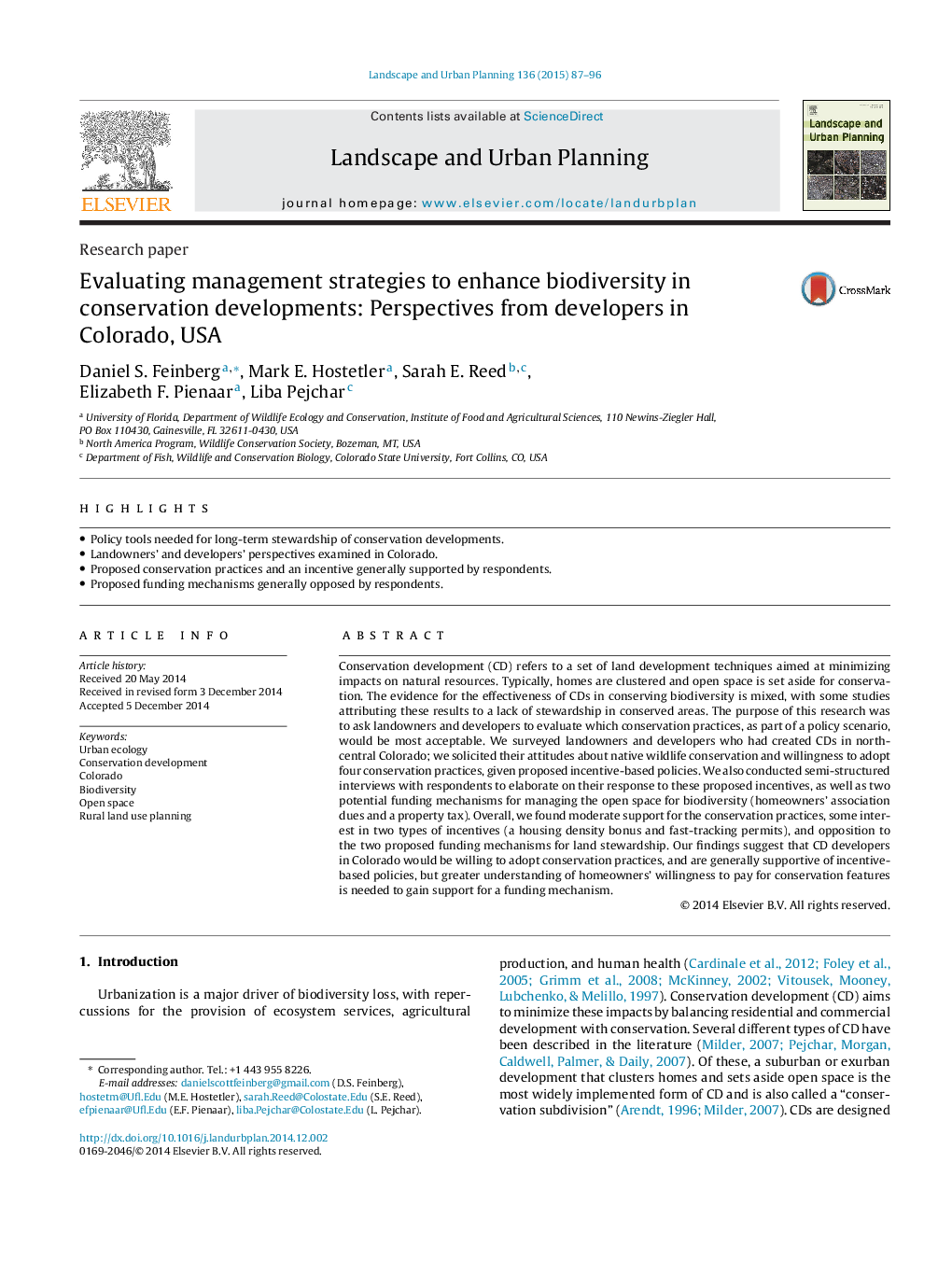| Article ID | Journal | Published Year | Pages | File Type |
|---|---|---|---|---|
| 7461220 | Landscape and Urban Planning | 2015 | 10 Pages |
Abstract
Conservation development (CD) refers to a set of land development techniques aimed at minimizing impacts on natural resources. Typically, homes are clustered and open space is set aside for conservation. The evidence for the effectiveness of CDs in conserving biodiversity is mixed, with some studies attributing these results to a lack of stewardship in conserved areas. The purpose of this research was to ask landowners and developers to evaluate which conservation practices, as part of a policy scenario, would be most acceptable. We surveyed landowners and developers who had created CDs in north-central Colorado; we solicited their attitudes about native wildlife conservation and willingness to adopt four conservation practices, given proposed incentive-based policies. We also conducted semi-structured interviews with respondents to elaborate on their response to these proposed incentives, as well as two potential funding mechanisms for managing the open space for biodiversity (homeowners' association dues and a property tax). Overall, we found moderate support for the conservation practices, some interest in two types of incentives (a housing density bonus and fast-tracking permits), and opposition to the two proposed funding mechanisms for land stewardship. Our findings suggest that CD developers in Colorado would be willing to adopt conservation practices, and are generally supportive of incentive-based policies, but greater understanding of homeowners' willingness to pay for conservation features is needed to gain support for a funding mechanism.
Related Topics
Life Sciences
Agricultural and Biological Sciences
Ecology, Evolution, Behavior and Systematics
Authors
Daniel S. Feinberg, Mark E. Hostetler, Sarah E. Reed, Elizabeth F. Pienaar, Liba Pejchar,
